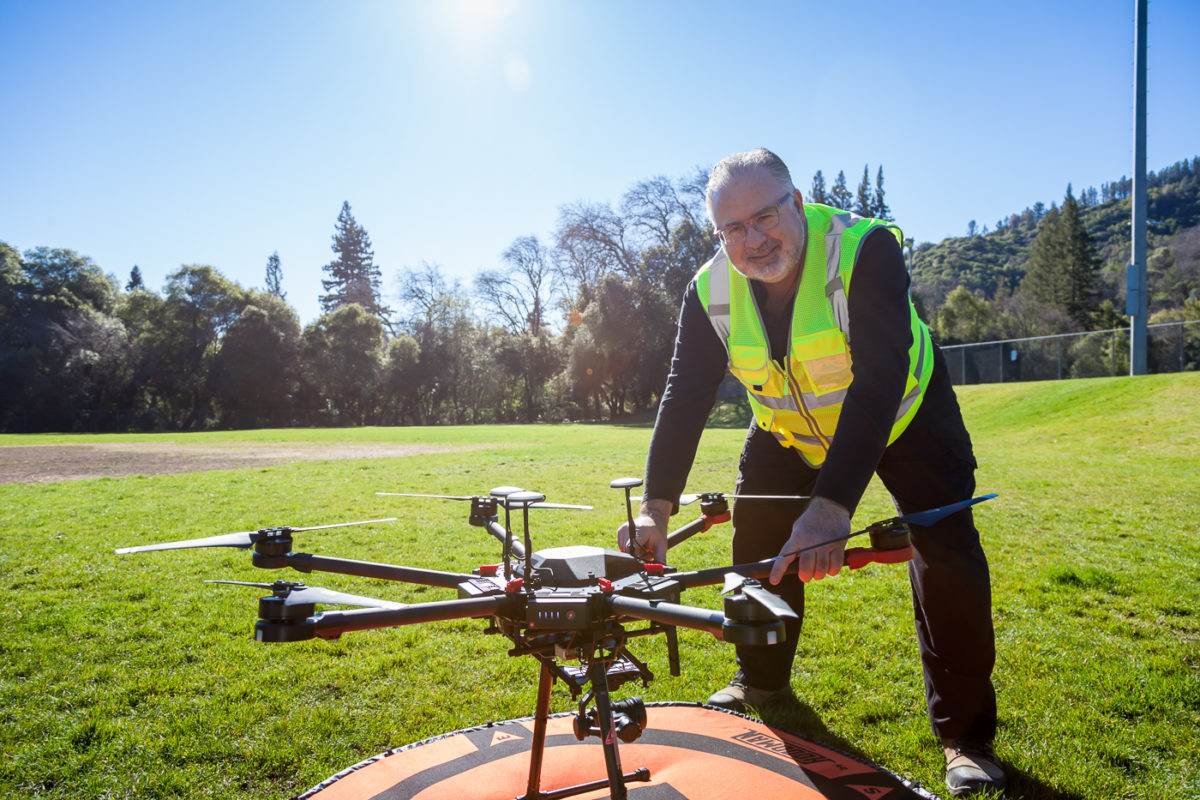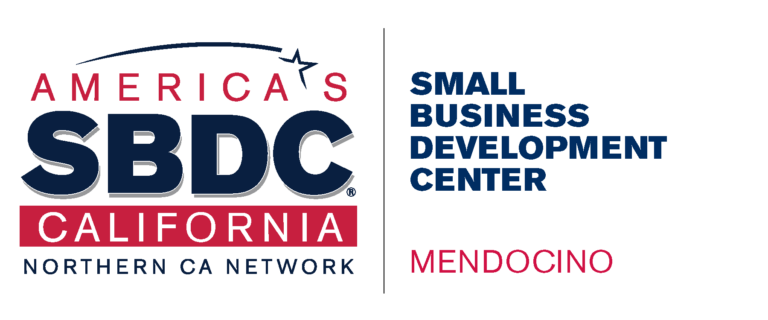Mendocino SBDC
Volare Aerial Imaging
“It’s been a real confidence booster to have someone as a sounding board and help connect to local companies so it’s really helped me stay motivated. I can contact my personal advisor at any time and he usually responds within an hour to any questions I have or to set up a meeting.”

Lorenzo Rota knew how to fly a drone but he needed some help to make his business soar.
On a sunny Saturday in February 2021, we met up with Lorenzo Rota at Giorno Park in Ukiah. Lorenzo is pretty new to the area but he brought with him a very interesting business! We kicked off our conversation by talking about what Volare Aerial Imaging does
WC: Tell our readers who you are and what your business is.
LR: My name is Lorenzo Rota. I am the owner of Volare Aerial Imaging, a drone services company in Mendocino County. I provide services to agriculture, construction and utilities. We love flying drones!
WC: When did you first fly a drone and what did it feel like?
LR: I first flew one in 2015 and I was scared as heck. I survived the flight but not the landing!
WC: What led you into deciding to start a drone business?
LR: I was first involved in using kites for aerial photography. I was using them to lift fairly heavy cameras with remote-control gimbels. And then drones arrived, which became a game changer as we weren’t stuck relying on wind and strings to hold the cameras in the air. I was given a drone as a gift and started playing around with it learning about photography and videography. Then I learned you could generate maps using the drones. I started connecting with local businesses [on the central coast] that were involved with using drones for inspecting wind turbines and from there I got into mapping local farms in the Santa Cruz/Monterey area.
WC: How fast can your drone fly?
LR: This one can fly about 50 miles per hour. It can lift 13 lbs and its range is about 2 miles. I can attach DSLR cameras, multi-spectral sensors, put lasers on it, and dispensers for beneficial insects.
WC: What’s the process for launching your drone to the completion of a project?
LR: For every project we first have to plan out the flight. We make sure there are no FAA restrictions in the area or firefighting efforts so we don’t launch when other aircraft are in the air. We also get any authorizations from the local airport, which is required in Ukiah. If it’s an autonomous mission, we program the flight before we even reach the location so the drone flight is pre-planned and we’re not actually flying it. We’ll go on-site, say to a farm or vineyard, set up a safe area, check for aircraft, launch and complete the mission. Once we get back to the office, we take the data and put it into software that generates a map, depending on whether we use a camera or specialized sensors for checking crop health.
WC: What do the sensors record?
LR: The sensors can detect various light bands and then we can determine the crop health. If we see any problems with the crops we can also reconfigure the drone to dispense beneficial insects, which will attack insects or other problems on crops.
WC: What do you do for construction projects?
LR: For construction, we can monitor a site over time. We fly weekly flights over the same location and the construction managers can remotely check material locations, equipment locations, and the progress of the construction.
WC: What is the most amazing, unique thing you have learned while doing this work?
LR: I didn’t know you could help strawberry fields by releasing beneficial insects from drones.
Next, we were interested in how Lorenzo learned about the Mendo-Lake SBDC.
WC: Did you know about the Mendo-Lake SBDC before you moved here?
LR: When I moved here I contacted the SBDC to take some webinars they were offering. From there I had some in-person advising at the SBDC office where we talked about formalizing the business and creating a business plan. It was a very comfortable experience. My advisor was also from a technology background so he understood where I was coming from and the transition I was making. It’s been a real confidence booster to have someone as a sounding board and help connect to local companies so it’s really helped me stay motivated. I can contact my personal advisor at any time and he usually responds within an hour to any questions I have or to set up a meeting.
WC: What did you learn about what the Mendo-Lake SBDC offers their clients?
LR: The most important thing I got from the Mendo-Lake SBDC was from their online webinars learning about how to market the business via online venues. I highly recommend them. I’ve got some great ideas from them and it’s been extremely beneficial for my company.
WC: What are the most challenging and most rewarding parts of owning your own business?
LR: The most challenging part is keeping up with all the business operations while still being focused on technology and the drone equipment as the industry keeps changing. The most rewarding is meeting new people and solving problems that people haven’t been able to solve before.
WC: What is the coolest project you’ve ever flown your drone on?
LR: The coolest has been inspecting transmission towers for wildfire risk and that’s because we go to many remote areas, sometimes on top of mountains and in really out-of-the-way places. We’ve seen some really wild things out there.
WC: Any last words for us today?
LR: It’s great that Mendo-Lake SBDC provides no cost services and advising to me!


